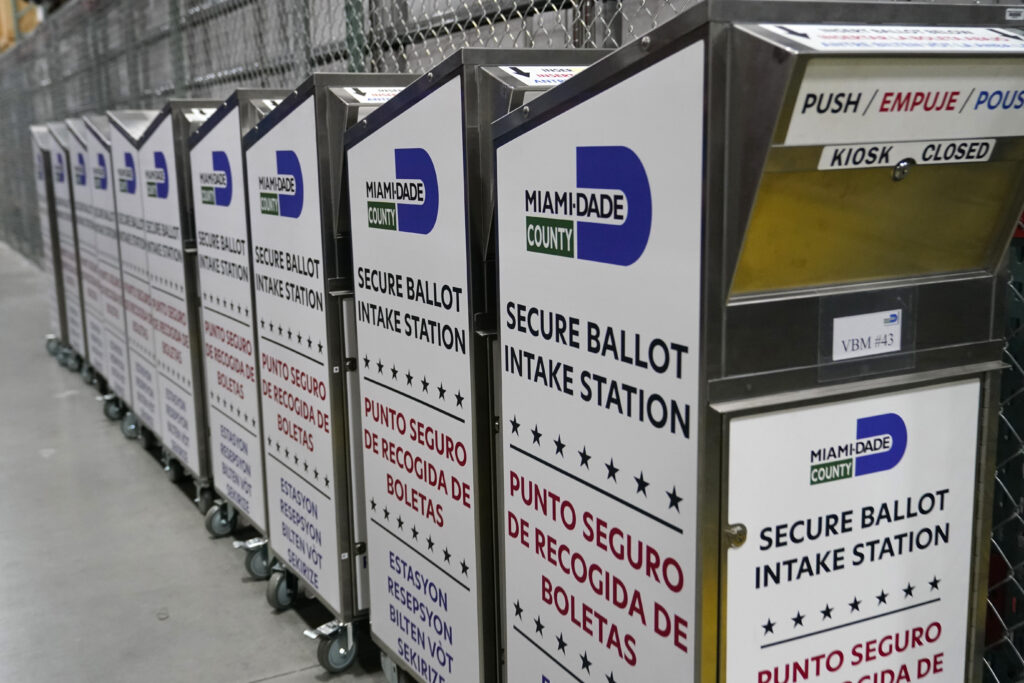This is the biggest year in the history of democracy. Nearly half the human race will cast a ballot in some form or other of a national election in 2024. It is, optimistic observers say, a reminder that representative government is not yet done. If history has not exactly ended, it is still, despite everything, heading in the right direction.
Hmmm. Let’s check in on some of those elections, shall we? The first big country to go to the polls was Bangladesh, with a population of 170 million, on Jan. 7. The result cemented the one-party rule of the authoritarian prime minister, Sheikh Hasina, whose party won 223 out of 300 seats. The State Department, in the careful language used by diplomats on these occasions, declared it was “concerned by the arrests of thousands of political opposition members and by reports of irregularities on elections day. The United States shares the view with other observers that these elections were not free or fair.”
Not that Hasina cares what Uncle Sam thinks. The U.S., the European Union, and Britain can complain all they like about bogus elections as long as China remains friendly.
The next big country to vote will be Pakistan, with a population of 230 million, on Feb. 8. Here, too, the opposition has been broken, its leader, Imran Khan, incarcerated, and its candidates disqualified, exiled, or jailed.
As we look down the list of looming elections, we see many more such cases. Joseph Stalin probably never uttered the quip attributed to him to the effect that those who cast the votes decide nothing and those who count the votes decide everything. But there are plenty of dictatorships that like to embellish their legitimacy through performative polls. Among those trudging to the polls this year will be Cambodians, Venezuelans, and, indeed, Russians, none of them with any expectation of change.
It is a paradox. More countries than ever are going through the physical process of voting. Yet liberal democracy is in retreat, however you measure it. The Democracy Index, run by the Economist Intelligence Unit, had predicted the recent decline in freedom to be reversed in 2022, as COVID-19 restrictions were lifted, but identified no such recovery. International IDEA concluded that “2022 was the sixth consecutive year in which more countries experienced net declines in democratic processes than net improvements.” Freedom House found that “global freedom declined for the seventeenth consecutive year.”

The last time we saw a sustained retreat on anything like this scale was between the two world wars, when all of Europe, except Britain, France, the Low Countries, and Scandinavia, turned to autocratic government. In those days, some people opposed representative government from first principles. Marxists argued that democracy was a scam because rich people owned newspapers that persuaded workers to vote against their interests. Fascists argued that democracy was divisive and that the national will should be expressed through a strong leader.
These days, hardly anyone argues against the principle of democracy. Even China has a National People’s Congress, indirectly elected under tight Communist control, but notionally representing the nation.
We have retained the trappings and appurtenances of democracy, but we are losing interest in the chief benefit it bestows, namely the ability to change your leaders peacefully. This practical advantage outweighs the more theoretical gains associated with democratic government. As long as we can remove our rulers without anyone being exiled or shot, we lower the barriers to entry, attract a higher caliber of politician, and ensure that those in office will be circumspect about amassing too much power because they know that it might be in the hands of their opponents tomorrow.
CLICK HERE TO READ MORE FROM THE WASHINGTON EXAMINER
Who stands for that ideal today? When formerly fascist states adopted democracy after 1945, and when formerly communist states did so after 1989, they were consciously trying to be more American. But the U.S. itself, which had had a run of peaceful transfers of power since 1860, ended that record in 2020. All of a sudden, there is no adult in the room.
The world is moving toward a form of hybrid democracy, in which elections happen but candidates unpopular with the regime are disqualified on technicalities. We have long taken that system for granted in Iran or Venezuela. But can you honestly tell me it is still unthinkable in the U.S.? Dictatorships worldwide will continue to hold ballots for essentially atavistic reasons, as British monarchs continued to call themselves kings of France until 1802. But process will be increasingly subordinated to outcome. The postwar era, capitalist, democratic, and American, is starting to look like an accidental blip.
